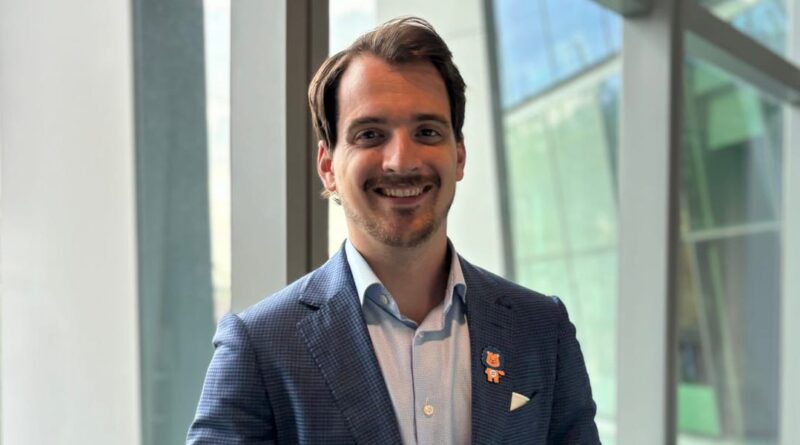I'm an American doing an MBA in Asia. International schools are a great option, especially with the US visa chaos.
This as-told-to essay is based on a conversation with Ryan Edward Wall, 32, an MBA student at the National University of Singapore. The following has been edited for length and clarity.
I moved to Singapore last year to pursue my MBA at the National University of Singapore (NUS).
Before going to business school, I’d graduated from the University of Colorado Boulder with a bachelor’s degree in aerospace engineering with a minor in biology in 2018.
After graduation, I worked at Lockheed Martin before starting my own business. That was when I realized that I wanted to learn more about the theoretical underpinnings of business. Getting an MBA felt like the right way to do that.
I ended up applying to several business schools, including INSEAD, Wharton, Stanfordand Cambridge. I received offers from INSEAD and NUS, and picked NUS.
The US may be the birthplace of the MBA, but international schools offer something different
Everyone knows that the US is the birthplace of the MBA. When people think about getting an MBA, they say, “Yeah, you go to a US school.”
But that wasn’t what I wanted from my MBA journey. I wanted a unique experience for myself. That drove me to consider international schools instead. I wanted to be surrounded by people from diverse backgrounds, and to challenge myself intellectually and culturally.
Sure, you can get diversity from attending a US business school. Those programs do try to attract foreign students as well, but the experience just isn’t the same. You will get to meet people from different countries, but you won’t get to engage with their culture.
INSEAD does have a campus in Singapore, but I found NUS to be more integrated with the country. It felt a lot more community-driven, was affordable, and also well-rated.
The fact that I can jump on a plane and go anywhere in Southeast Asia is unbelievable
Wall (third from left) is the president of the business school’s cultural, social, and community club. Ryan Wall
My experience at NUS has been fantastic thus far. Yes, the weather over here is a bit humid and hot, but I think it’s fine. The public transport is good, the country is super safe, and the food is amazing.
I have made friends from every corner of the planet, and it’s interesting to hear their views on things. Learning about little cultural nuances has also been fulfilling.
The fact that I can jump on a plane and go anywhere in Southeast Asia in two hours is unbelievable. For example, I participated in an immersion program in Thailand with my Thai classmates. I got to see the country through their perspective, something that I couldn’t do if I were studying in the US.
Curriculum-wise, I’ve had some really all-star professors who are willing to go above and beyond to help students. I am also active in extracurricular activities. I am the president of the business school’s cultural, social, and community club.
I joined a case competition with my classmates too. We flew to Paris to compete, and we managed to win with the support of the faculty.
This first year has been really spectacular for me. The only gripe I would have is that it’s been too fast. The program is only for 18 months, so the MBA will be over in a snap.
Trump’s crackdown on student visas could be a silver lining for students
I have friends right now who are trying to get their visas so that they can do a short-term exchange in the US. They are trying to set up meetings, and it’s all messed up right now. I think that’s a shame.
The crackdown on student visas doesn’t just hurt the students who want to study in the US. It hurts domestic students as well, who are now less likely to interact with students from other countries.
I do think there is a silver lining to all this chaos. For a lot of people, the Ivy League universities are seen as the bastions of knowledge, and to a degree, they absolutely are. But this means some people might be overlooking the value that other institutions have to offer.
Obviously, you wouldn’t move to Asia to study if you are from the region or if you want to start a life in the US. This applies more to students who come from the West and want to push themselves.
Coming to Asia will be a real eye-opener for them. For me, I’ve learned a lot from studying in Singapore. In fact, I have learned more outside the classroom than inside it, and that’s saying something because we study a lot here.
People may start looking at other options given the situation now, and that can be a good thing. Maybe people will stop picking schools based on their rankings and whether they are the absolute best.
One’s education is not defined by what classroom one is sitting in. It’s about what you learn, and more importantly, how you apply your knowledge in your life after graduation. Many institutions can prime you for that.
The idea that only some institutions can bring you success, that to me, is in itself a problem.





